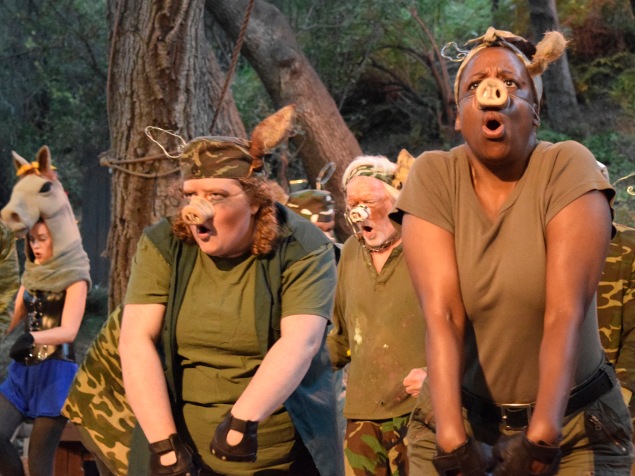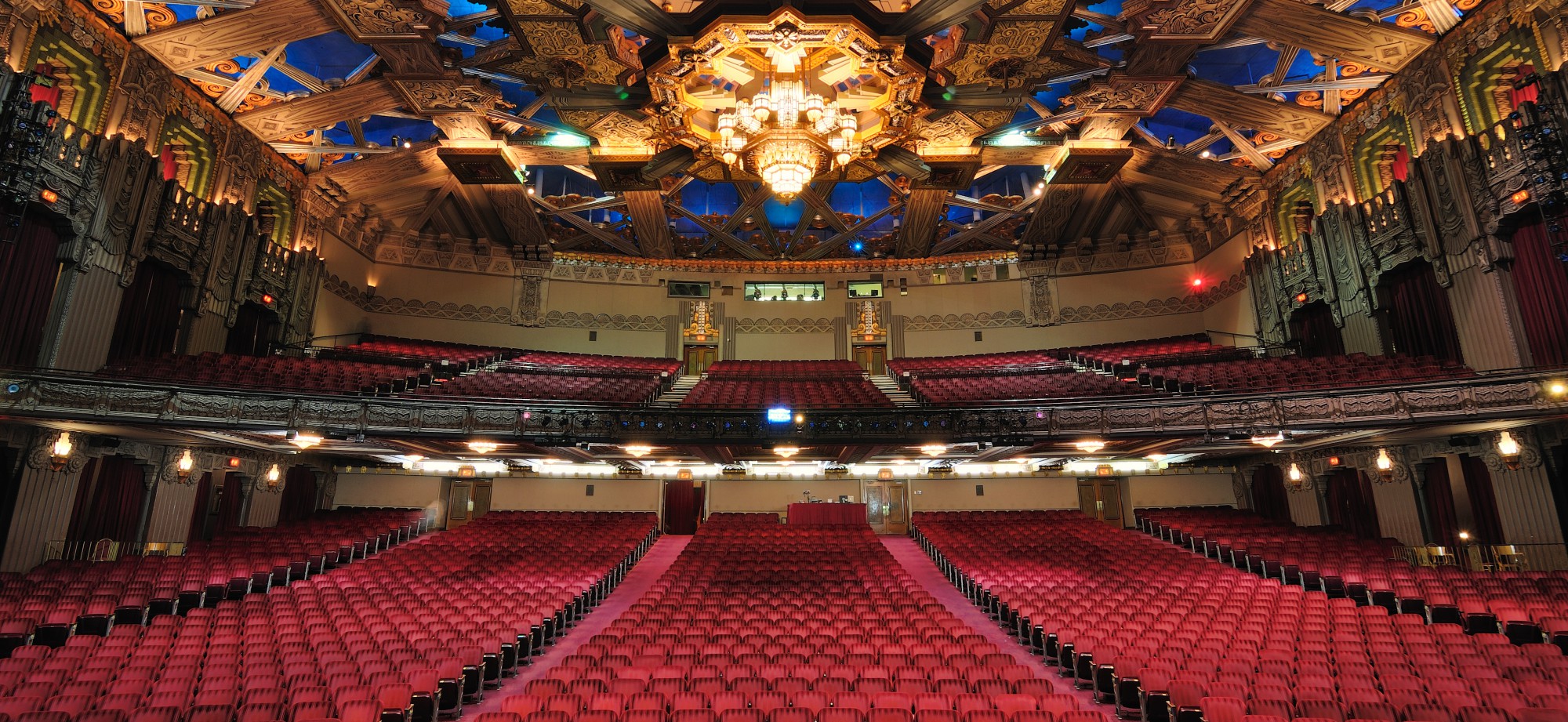
George Orwell’s Animal Farm, a classic piece of Twentieth Century literature that is de rigueur in classrooms, is a biting satire of the politics of revolution. Taking the Russian Revolution as a model, Orwell shows how the idealism of original revolutionaries gets co-opted by the unsavory and the ambitious. In Theatricum Botanicum’s staging of Peter Hall’s adaptation, with music by Richard Peaslee and lyrics by Adrian Mitchell, Manor Farm is poorly run by its owner, the sloppy sot Mr. Jones (Steve Fisher). The animals, neglected and abused, are ultimately inspired by an aging boar named Old Major (Thad Geer), to organize and revolt, kicking the owner out and changing the name of their new enterprise to Animal Farm.
The pigs, notoriously intelligent animals, lead the revolution with the idealistic pig Snowball (Christopher Yarrow) calling for equality among the animals and a government of consensus, with decisions made by voting. This enlightenment is soon subverted by a pig named Napoleon (Mark Lewis), aided by a toady named Squealer (Melora Marshall) and a poetic pig named Minimus (Holly Hawk), who steps up as propagandist. The groups of animals—chickens, sheep, horses, cows, a donkey, a goat, a raven and a cat—work hard and achieve well, until Napoleon and his cohorts gradually take over, driving out Snowball and instituting a totalitarian regime in which all the benefits go to the top, leaving the animals worse off than they were before the revolution. This is the sad template of many revolutions–idealism that gives way to corruption and the relocation of power from the many to the few.

With an enormous ensemble of well over thirty actors and musicians, Theatricum Botanicum’s Animal Farm is ambitious. Under the direction of Ellen Geer, with animal movement by Lexi Perl, the cast delivers the story with dedicated enthusiasm. It is not easy for two-legged people to represent four-legged animals over the course of a two-act play. The stylized movement suggests four legs with stiff arms and clenched fists and a posture that leans forward. Headpieces and ears work well for the horses and cows. The sheep are successful four-leggers, cavorting with arm crutches. A non-speaking rooster is entirely successful strutting with avian assurance, and his hens are terrific. Wolf-like dogs, Napoleon’s enforcers, and the egocentric cat are the only genuine quadrupeds. The mare, Mollie (Lea Madda), the most charming animal on the farm, if the most self-absorbed, prances with equine grace.

The play, and the book, for that matter, is polemical and didactic. The rise of the pigs to piggy power is well known and expected. The action of the play inevitably calls to mind current events. Certainly there is something piggish about Kim Jong Un and his regime that demands slavish worship by the masses. There is a fleeting moment tossed our president’s way. This temptation may be strong, but it is a stretch a bit too far. Towards the end of the play, completing the short tour of deplorables, Napoleon starts to speak with a guttural German accent as he and the piggy cohort march in an awkward goose-step.
As political satire, Animal Farm works well, but there is little in the way of genuine emotional content. The death of the stalwart stallion, Boxer (Max Lawrence), means to be touching, but, in its inevitability, fails to move.

A special mention must go to the young narrators, Sierra Rose Friday and Shane McDermott, who perform their task admirably from their perch downstage right. Kudos!
Animal Farm runs in rotating rep with the other plays of Theatricum Botanicum’s 2017 season, A Midsummer Night’s Dream, The Merchant of Venice, Other Desert Cities, and Trouble in Mind through October 1.
